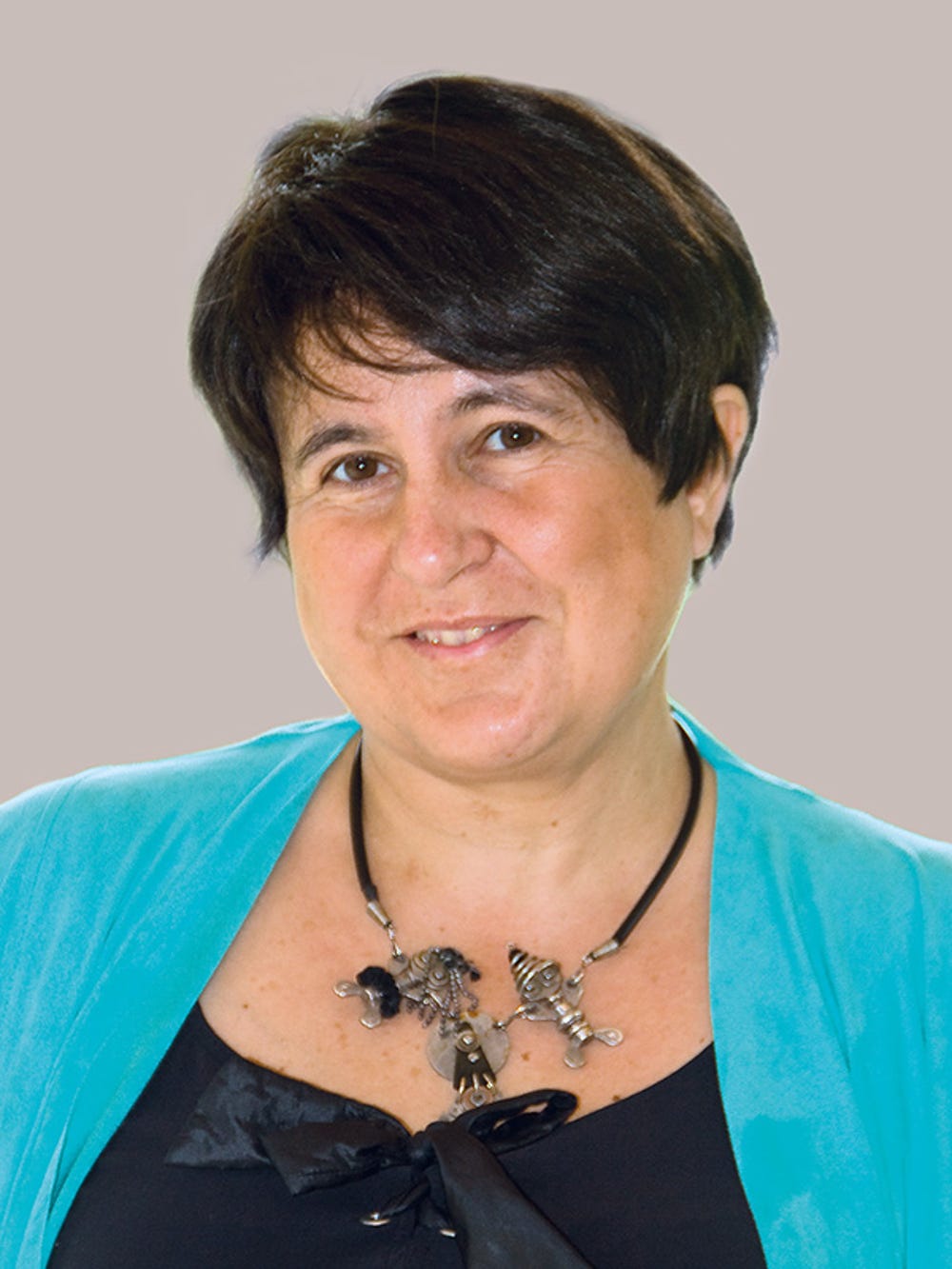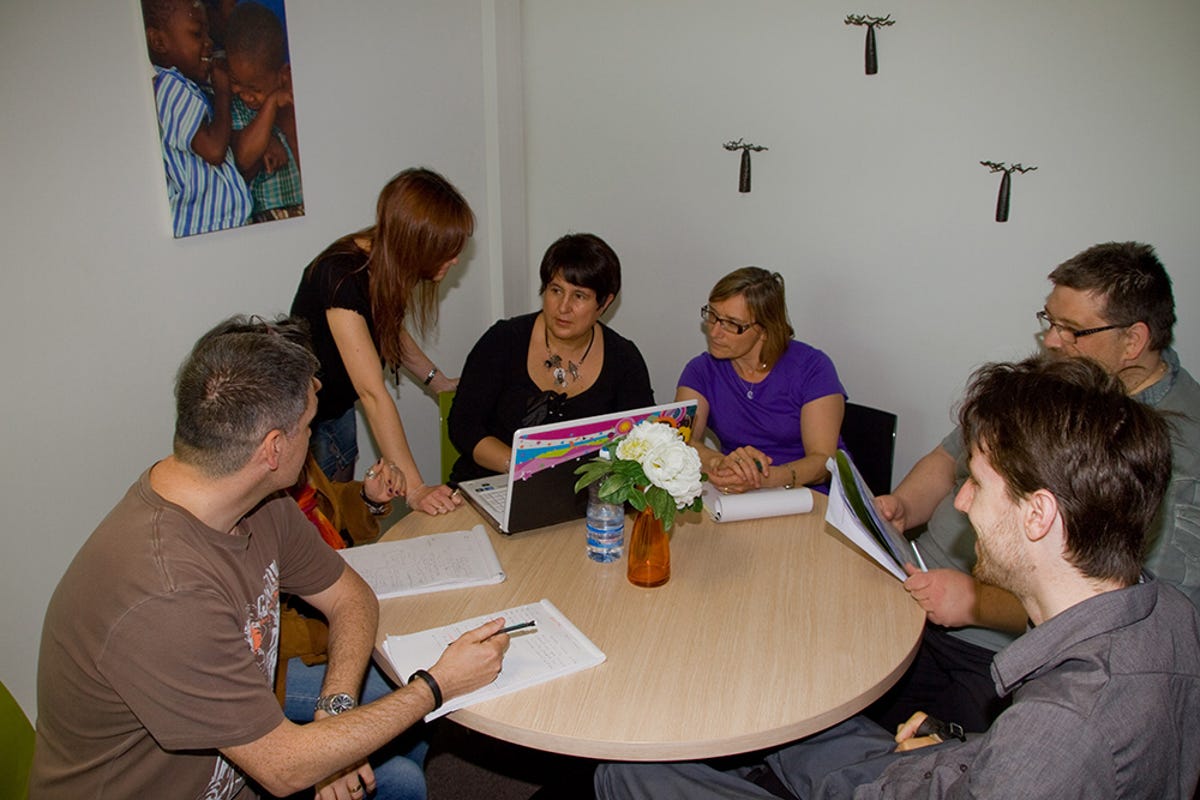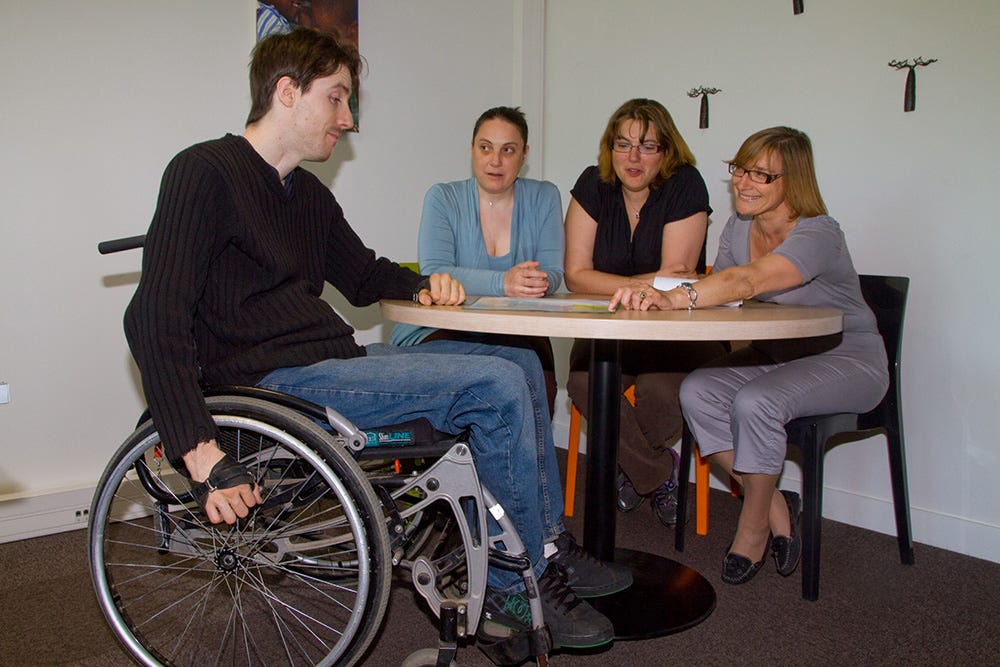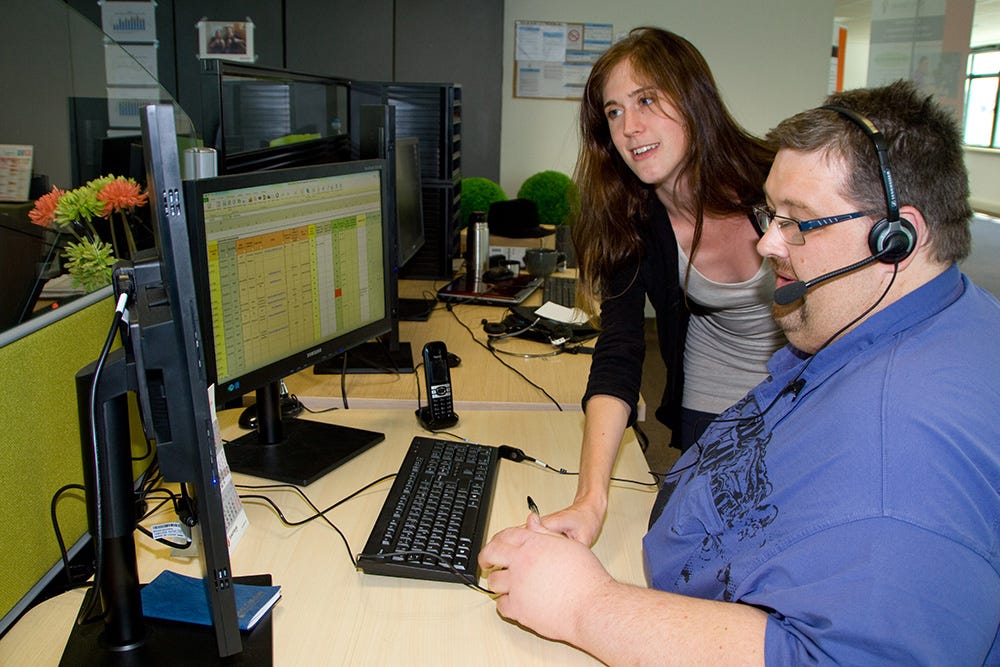Fellow Portrait
Patricia Gros Micol
Handishare

Handishare employs disabled people to provide back-office and administrative services to businesses.
Europe
FRANCE
Fellow
2013
Updated March 2013
At the age of 17, Patricia Gros Micol was in a train crash that left her with chronic head and back pains. Later she experienced partial facial paralysis, then survived a small heart attack. ‘At one point, all my hair fell out! But I never thought I was a woman with disabilities.’ Legally speaking, she is, but after 25 years working in management positions, Patricia was patently more than capable. So she decided to set up a company giving employment opportunities to disabled people. An ‘adapted’ company: the official term for a company with over 80% disabled employees.
France has 1.8 million disabled people of working age. But Patricia found that most jobs offered by adapted companies are in manual sectors such as gardening or cleaning. She wanted opportunities for people whose disability does not fit with physical activity. French businesses with over 20 employees are legally obliged to hire 6% of disabled workers. Since 2010, they have been fined heavily if they do not. If they outsource work to adapted companies their obligations can be reduced by up to 50%. Handishare decided to provide these outsourcing abilities.
The company offers a range of business administration services in typically time-consuming areas, notably document scanning, telephone prospection or electronic document management. ‘There is a growing amount of paperwork and administration in France, so I see it as a great market opportunity.’ To set up as an adapted business, which gives rights to certain tax breaks, Patricia had to compile a 200-page dossier. ‘It took over one year!’

Adapted to work
Created in late 2011, Handishare works with 20 companies, including Alstom, Alptis, Manitowoc and Bayer. It employs 11 people – the latest hire came on board in June 2013 – 10 of whom are disabled. The team ensures that Handishare is a byword for service, ‘to prove that people with “disabilities” have strong abilities.’ Patricia believes in customised solutions, both for clients and employees. ‘For each client we develop strict procedures and reporting and a high level of quality checking.’ For her employees, all of whom had to leave work due to the onset or aggravation of their disability, she adapts the work schedule to fit their rhythm and any treatment they may follow. Handishare’s tariffs are aligned with the competition: the company delivers in the same time frames and with high reactivity and quality, lauded by its clients. ‘There’s no reason why we would be cheaper.’
In 2012, Handishare generated revenue of US$130,000, including US$21,000 profit, which will be reinvested in the company, notably its imminent move to new premises. To adapt these to the needs of her employees, Patricia is investing US$53,000. ‘Carpet is bad for respiratory disabilities, so we’re investing US$13,500 in plastic flooring. Then there are the legal obligations, such as large doors and accessible toilets.’ The inspector who came found their fit-out perfect, with one exception: there was only one of the two mandatory changing rooms, one for men, one for women. ‘I told him we only have one male employee!’ Patricia has her own take on what an ‘adapted workplace’ is. ‘I’m going to make it into a relaxation room, with an exercise bicycle, a Wii and an armchair for massages.’




